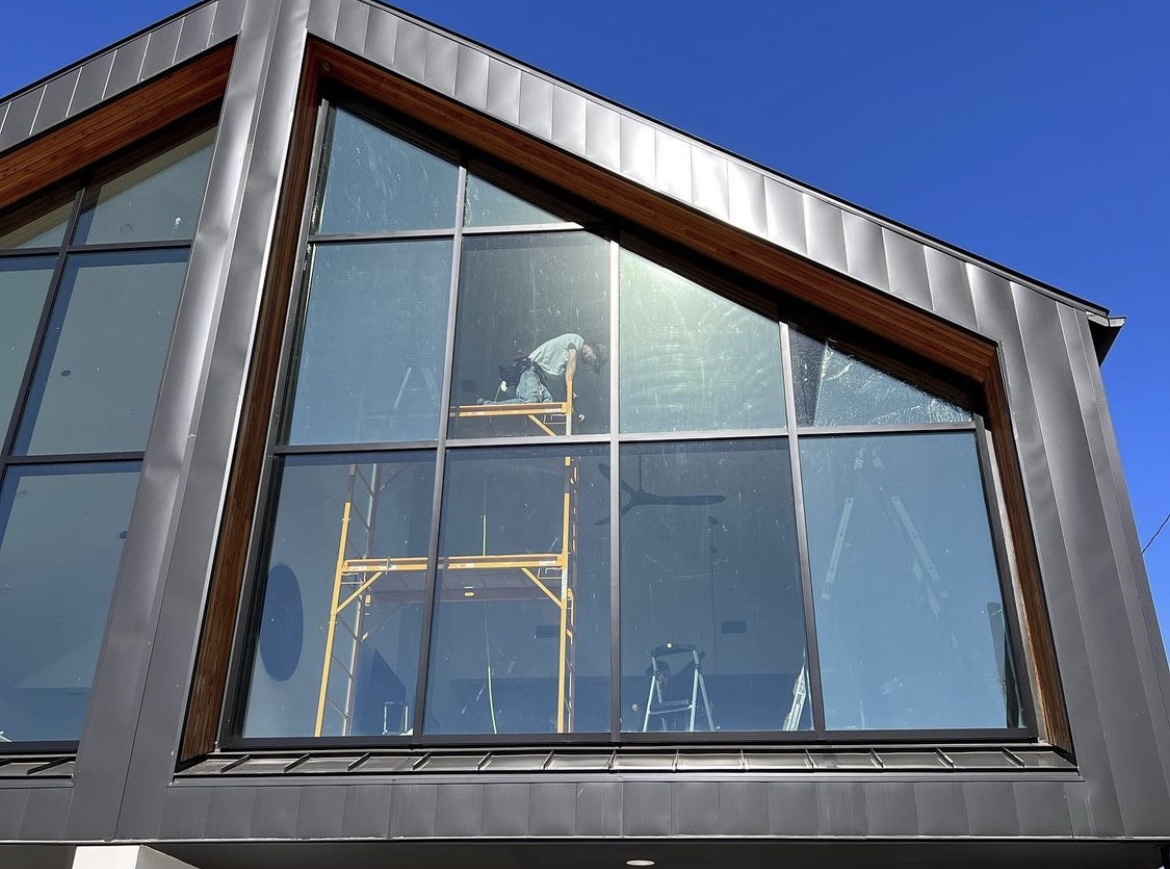Residential Window Tint: Secure Your Furniture from UV Damage
Residential Window Tint: Secure Your Furniture from UV Damage
Blog Article
Just How Residential Window Tinting Enhances Your Home's Power Performance
Residential home window tinting provides an engaging remedy for home owners seeking to enhance energy efficiency within their living spaces. By using specialized films to home windows, it successfully reduces warm transfer, thereby maintaining indoor temperature levels and reducing the requirement for too much home heating or cooling.
Comprehending Window Tinting
Recognizing window tinting is important for homeowners looking for to improve both convenience and power efficiency in their living spaces. Residential Window Tint. Window tinting includes the application of a thin movie to the inside or outside surface area of glass windows. This film can considerably modulate the amount of sunshine and heat that enters a home, hence influencing indoor climate problems
There are various types of home window tinting movies available, each with distinct properties. The performance of window tinting is commonly gauged by its Visible Light Transmission (VLT) percentage, which suggests how much light can pass with the film.
Advantages of Energy Efficiency
Home window tinting not only boosts looks but additionally plays a substantial role in improving power performance within domestic rooms. By decreasing warm transfer through windows, tinted movies create a much more stable indoor climate, which can result in significant decreases in energy consumption for home heating and cooling. This power performance converts right into reduced utility bills, giving house owners with significant long-lasting savings.

In addition, window tinting boosts the comfort of living rooms. By reducing glare and obstructing dangerous UV rays, tinted home windows create an even more enjoyable setting, which can cause enhanced wellness for occupants. The defense against UV rays likewise assists protect furnishings and floor covering from fading, adding to the longevity of household items.
How Tinting Works
Tinting movies operate with a mix of sophisticated materials and technologies designed to regulate the quantity of solar power entering a home. Largely composed of polyester, these movies often incorporate ceramic or metal particles that take in and show warmth. This double capability allows them to dramatically decrease the infiltration of ultraviolet (UV) rays and infrared radiation while allowing visible light to travel through.
The effectiveness of window tinting is gauged by its solar warm gain coefficient (SHGC), which shows just how much solar power is sent via the home window. Lower SHGC worths are more suitable web as they signify other higher warmth rejection. In addition, window colors can include a range of shades, enabling home owners to customize their aesthetic preferences while boosting power performance.
Additionally, these movies work as an obstacle, protecting against heat loss during cooler months by mirroring indoor warmth back right into the space. This thermal insulation result matches the air conditioning benefits gotten during warmer months, adding to a balanced indoor climate year-round. By taking care of solar power efficiently, household window tinting not just enhances comfort but likewise plays an important duty in decreasing energy intake and reducing utility expenses.
Picking the Right Color

There are different kinds of home window films offered, including dyed, metalized, and ceramic. Colored films are economical but might have restricted resilience. Metalized movies offer much better heat denial but can interfere with electronic signals. Ceramic films give superb warm control without compromising visibility and are highly sturdy, making them a prominent selection.
Noticeable light transmission (VLT) is another crucial factor, as it shows the amount of all-natural light that can go through the colored glass. Homeowners need to pick a color with a VLT that enhances their lighting preferences while still providing adequate glow visit homepage reduction.
In addition, examining the solar warm gain coefficient (SHGC) can help establish how well a tint can block heat from sunlight. A lower SHGC shows better warmth control, eventually improving energy effectiveness.
Installment and Upkeep Tips
Proper setup and maintenance are essential elements in making best use of the advantages of residential home window tinting. Experts also make use of specialized strategies and devices, which can enhance the durability and efficiency of the color.
Adhering to installment, maintenance is necessary to extend the life of the window film. It is suggested to wait a minimum of 30 days before cleansing the colored windows to permit the adhesive to treat totally. When cleansing, utilize a soft towel and a mild, ammonia-free cleaner to prevent harming the movie. Stay clear of rough products that can scrape the surface area.
Addressing these problems without delay can prevent additional damages and maintain power efficiency. By sticking to these installation and upkeep suggestions, home owners can ensure their home window tinting proceeds to offer considerable energy financial savings and comfort for years to come.
Final Thought
In final thought, residential window tinting works as an effective solution for enhancing energy efficiency within homes. By reducing warm transfer and obstructing damaging UV rays, window movies add to decrease energy intake and improved interior comfort. The selection of appropriate tinting products, in addition to proper installment and upkeep, additionally takes full advantage of these benefits. Eventually, home window tinting represents a lasting financial investment that not just decreases energy costs yet additionally promotes a comfortable living atmosphere throughout the year.
Home window tinting entails the application of a thin film to the inside or exterior surface of glass windows. By reducing warm transfer with windows, tinted movies produce an extra steady indoor climate, which can lead to considerable decreases in power intake for home heating and cooling.The performance of home window tinting is determined by its solar heat gain coefficient (SHGC), which suggests just how much solar power is transferred through the home window. By taking care of solar energy efficiently, residential home window tinting not only improves convenience but additionally plays a crucial duty in minimizing energy consumption and reducing energy expenses.
By decreasing heat transfer and obstructing harmful UV rays, window films add to reduce energy usage and improved interior comfort.
Report this page